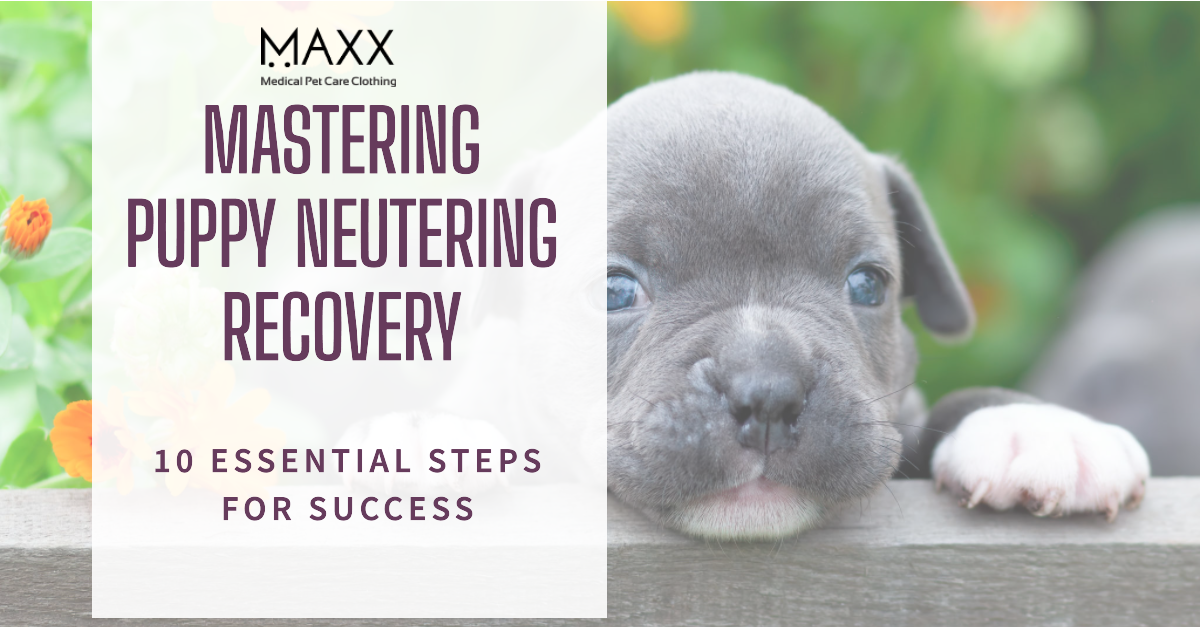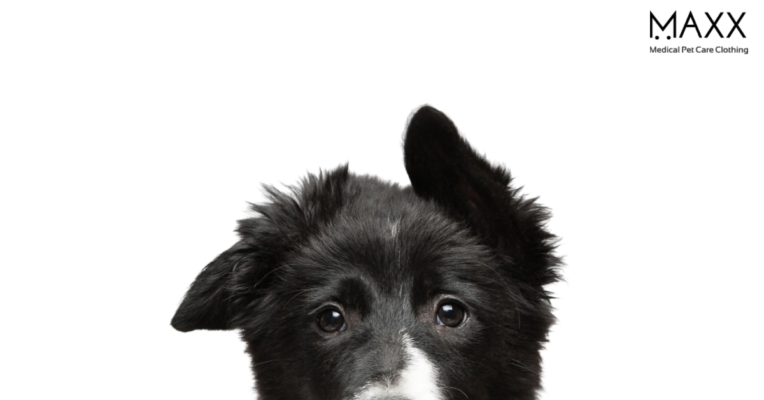MAXX Pet Blogs
“Mastering Puppy Neutering Recovery: 10 Essential Steps for Success”
Introduction
Mastering Puppy Neutering Recovery
Welcoming a new puppy into your life comes with lots of joy and responsibilities.
Among these responsibilities is the decision to neuter your furry friend.
If you’re planning to neuter your puppy, you might be wondering how long it takes for them to recover from the procedure.
In this article, we’ll discuss the neutering process, factors that can influence recovery time, and how to support your puppy during their recovery period.
What is Neutering? And How To Puppy Neutering Recovery
Neutering, also known as castration, is a surgical procedure that removes a male dog’s testicles. This procedure is performed to prevent unwanted pregnancies and reduce certain behavioral issues, as well as to provide some health benefits.
Benefits of Neutering
There are several benefits to neutering your puppy, including:
- Reducing the risk of testicular cancer and prostate problems
- Decreasing aggressive behaviour and territorial marking
- Lowering the likelihood of roaming in search of a mate
Risks and Complications
While neutering is generally a safe procedure, there are some risks and potential complications, such as:
- Infection
- Bleeding
- Swelling
- Adverse reactions to anaesthesia
Factors Influencing Puppy Neutering Recovery Time
Several factors can influence the recovery time of a puppy after neutering, including:
Age
Younger puppies tend to recover more quickly than older dogs, as their bodies heal faster.
Breed
Some breeds may be more prone to complications or have a slower healing process than others.
Health Status
A healthy puppy will generally recover more quickly than a puppy with underlying health issues.
Post-Operative Care for
Proper post-operative care plays a crucial role in ensuring a swift and smooth recovery for your puppy.
The Neutering Process
Pre-Surgery Preparation
Before the surgery, your vet will likely recommend fasting your puppy for a certain number of hours to reduce the risk of complications during anaesthesia.
The Procedure
During the neutering procedure, your puppy will be placed under general anaesthesia. The veterinarian will then remove the testicles through a small incision and close the wound with sutures.
Post-Operative Care
After surgery, your vet will provide you with instructions for post-operative care to ensure a smooth recovery for your puppy.
Puppy Neutering Recovery Timeline
Immediate Post-Operative Period and Puppy Neutering Recovery
In the first few hours following surgery, your puppy
may be groggy due to the anaesthesia. They may also experience some pain and discomfort, which can be managed with pain relief medication prescribed by your vet.
First Week of Recovery
During the first week of Puppy Neutering Recovery after the surgery, you should closely monitor your puppy for any signs of complications, such as swelling, redness, or discharge from the incision site.
It’s essential to restrict your puppy’s activity during this period to prevent them from accidentally injuring themselves or causing damage to the surgical site.
Full Puppy Neutering Recovery
Generally, puppies take about 10 to 14 days to recover fully from neutering surgery.
However, this timeline can vary depending on factors such as age, breed, and overall health.
How to Support Your Puppy During Recovery
To ensure a smooth and quick recovery for your puppy, follow these guidelines:
Pain Management
Administer pain relief medication as prescribed by your vet to help manage your puppy’s discomfort.
Monitoring the Incision Site
Regularly check the surgical site for any signs of infection or complications. If you notice any unusual symptoms, contact your vet immediately.
Activity Restriction
Limit your puppy’s physical activity during the recovery period, as excessive movement can hinder the healing process.
Avoid letting your puppy jump, run, or play roughly until they are fully recovered.
Providing a Comfortable Environment
Make sure your puppy has a quiet and comfortable space to rest during their recovery. Provide them with a soft bed, fresh water, and easy access to their food.
Conclusion
In summary, puppies typically take about 10 to 14 days to recover from neutering surgery. However, this timeline can vary depending on several factors, such as age, breed, and health status.
To ensure a smooth recovery, it’s crucial to provide proper post-operative care, including pain management, monitoring the incision site, restricting activity, and creating a comfortable environment for your puppy.
Frequently Asked Questions
- When is the best age to neuter a puppy? The ideal age to neuter a puppy varies depending on factors such as breed, size, and overall health. It is best to consult with your vet to determine the most suitable age for your puppy.
- Can neutering cause any long-term health issues? Neutering is generally considered a safe procedure, and the long-term health benefits often outweigh any potential risks. However, it’s essential to discuss any concerns with your vet.
- Will my puppy’s personality change after neutering? Neutering can reduce certain behaviors, such as aggression and marking. However, it is unlikely to significantly change your puppy’s overall personality.
- Can I bathe my puppy after neutering? It’s best to wait at least 10 to 14 days before bathing your puppy to allow the incision site to heal properly. If your puppy gets dirty during this period, you can clean them gently with a damp cloth.
- When can my puppy return to regular activities after neutering? Your puppy should avoid strenuous activities until they are fully recovered, which usually takes about 10 to 14 days. Always consult with your vet before resuming regular activities to ensure your puppy has healed properly.
BE GERNEROUS AND DONATE TO A SHELTER TODAY
READ ARETICAL HERE ABOUT DONATING SURIGICAL PET SHIRTS


